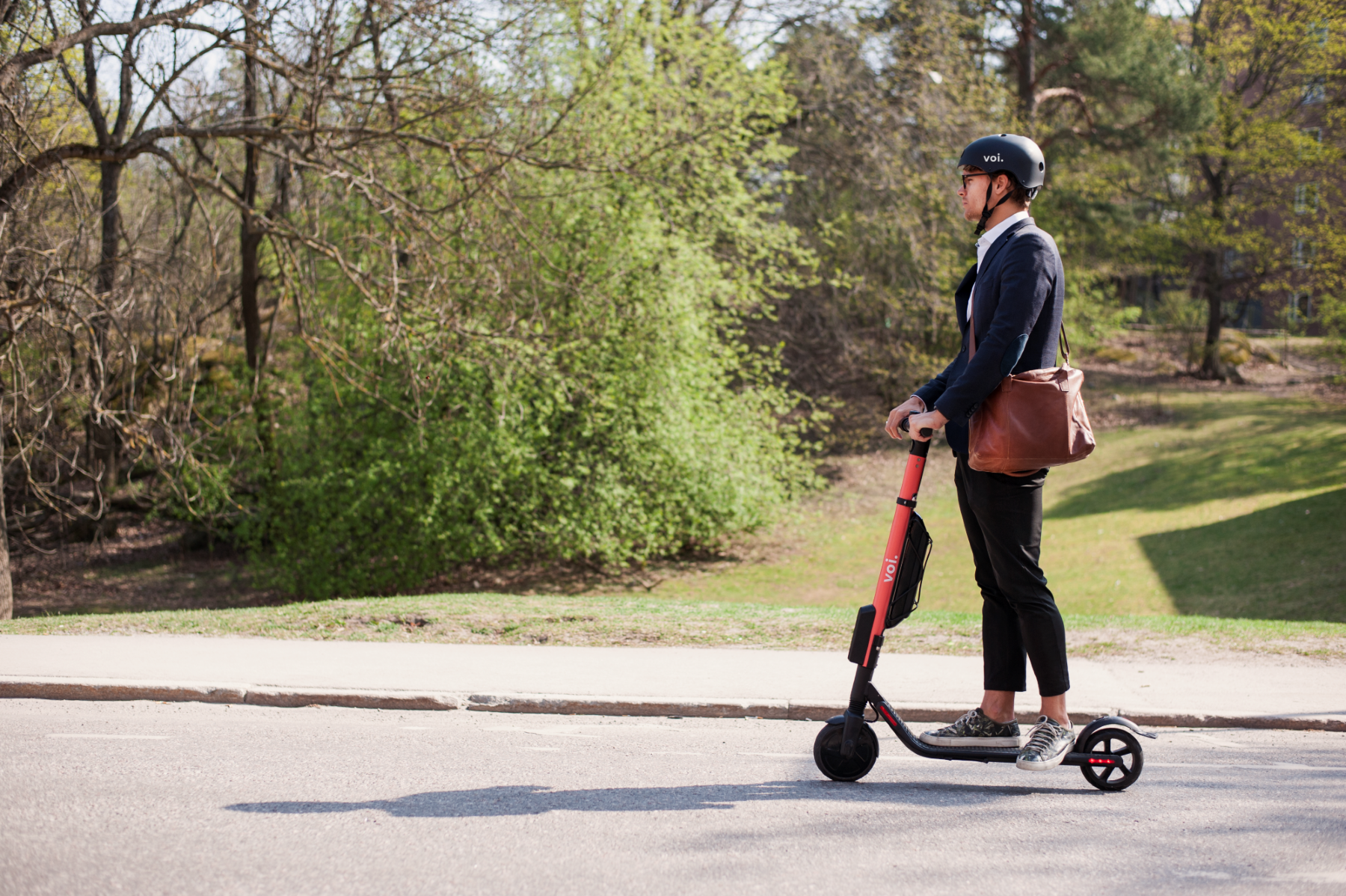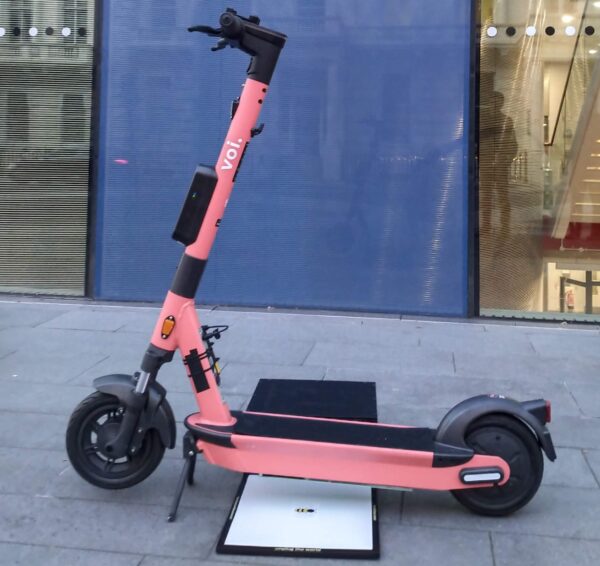
Swedish micromobility startup Voi is exploring the potential of wireless charging for its fleets of e-scooters and e-bikes.
The Stockholm-headquartered company is working with Bumblebee Power, an Imperial College London spin-out company that is commercialising wireless power technology.
Bumblebee has retrofitted a Voi e-scooter with a wireless charging receiving unit to demonstrate the potential of the technology.
It consists of a thin and lightweight receiver coil and charger unit attached to the scooter. A charging pad below the scooter, which consists of a thin printed circuit board-based coil and control unit, transfers power wirelessly.
The charging pad could be connected to the energy grid and can be attached to the ground. Wireless charging pads could then be built into docking areas for rental e-scooters, allowing them to be charged while not in use.
These transmit pads could be easier to add to city infrastructure compared with existing charging hubs, which usually require a rider to manually connect the e-scooter to a power source.
How well do you really know your competitors?
Access the most comprehensive Company Profiles on the market, powered by GlobalData. Save hours of research. Gain competitive edge.

Thank you!
Your download email will arrive shortly
Not ready to buy yet? Download a free sample
We are confident about the unique quality of our Company Profiles. However, we want you to make the most beneficial decision for your business, so we offer a free sample that you can download by submitting the below form
By GlobalData
Voi and Bumblebee will explore the viability of this in their first research project.
“Voi is constantly on the lookout for innovative solutions that will accelerate the micromobility revolution,” said Fredrik Hjelm, CEO and co-founder of Voi.
“As more cities adopt electric vehicles and micromobility transport in response to growing concerns over air pollution and congestion, the need for efficient, sustainable, and scalable operations becomes ever greater.
“We are proud to support the research and development that will further these goals by working with a world-leading institution such as Imperial College and Bumblebee Power. We’re aiming for long-term charging solutions that secure the future of micro-mobility.”
Voi told Verdict that the two companies began working together in the third quarter of 2020. The next steps will include further lab testing with a view to starting trials in 2021.
Wireless e-scooter charging benefits
Rental e-scooters have surged in popularity, providing a greener form of intra-city transport. However, collecting them in vans to charge in warehouses overnight emits makes them less environmentally friendly.
Micromobility startups have been exploring various options to overcome this, such as swappable batteries and charging docks.
Voi said that wireless charging solutions could complement these existing methods and provide operational and environmental benefits.
These could include improved charging efficiency, incentivising riders to park in designated areas and keeping the e-scooter fleet active on the road for longer.
Bumblebee Power, founded by a team of Imperial College London academics, said its wireless charging solution offers three times the range of other wireless charging technologies, has three time the tolerance to misalignment and is 10% lighter than other solutions.
David Yates, CTO and co-founder of Bumblebee Power, said: “Bumblebee Power is proud to be collaborating with Voi and share a common vision to explore how Bumblebee’s versatile, practical and innovative technology can transform the use and operation of micro-mobility vehicles.
“Bumblebee’s technology addresses key concerns about environmental pollution reduction, effective use of public space with its unobtrusive and highly efficient wireless charging systems.”
Bumblebee Power has raised more than £5m in funding to develop its technology, as well as grants totalling £280,000.
Earlier this month Voi announced a $160m funding round to help drive European expansion.
Read more: Voi uses AI selfie tool to reward e-scooter riders for wearing helmets



